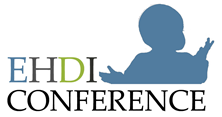| Presenter Information: |
| Presenter 1: |
Name: William Eiserman
Affiliation:
William Eiserman is the Director of Early Childhood Projects at the National Center for Hearing Assessment and Management. Over the past 25 years William has overseen a variety of projects to improve the quality of early intervention services for children with disabilities. Most recently William has been directing the Early Childhood Hearing Outreach (ECHO) Initiative at NCHAM which focuses on updating hearing screening practices for children served by Head Start programs, community health clinics and early intervention programs. His strengths as an educational researcher, evaluator, and instructional designer combined with his knowledge of special needs populations has lead to significant advances in the development of periodic early childhood hearing screening practices.
|
| Presenter 2: |
Name: Diane Behl
Affiliation:
Diane Behl is a Senior Researcher at Utah State University and has been involved in the development and evaluation of numerous systems building efforts for children and youth with special health care needs. She is co-principal investigator of Champions for Inclusive Communities, a national center funded by the Division of Services for Children with Special Health Needs. She also has served as a consultant for the National Center for Hearing Assessment and Management, investigating assessment, intervention and inter-agency coordination for young children with hearing loss. Past projects include Champions for Progress, Measuring and Monitoring Community-based Systems of Care, and Opening Doors, all of which emphasized the value of Continuous Quality Improvement strategies for systems building. Additionally, she has investigated the effectiveness of service coordination provided via Part C Early Intervention Systems, managed care, and medical homes.
|
| Presenter 3: |
Name: Lenore Shisler
Affiliation:
Lenore Shisler is a Senior Research Scientist with the National Center for Hearing Assessment and Management. Her work scope has included providing technical assistance to states implementing newborn hearing screening programs, advising a software development team on international, state and hospital data management needs, writing software user guides, and working with the American Academy of Pediatrics and other professional organizations to create instructional materials for physicians and parents on infant hearing loss. Most recently, her work has focused on promoting periodic screening in early childhood settings to reach vulnerable populations to identify children with post-neonatal hearing loss. Current projects include developing and refining instructional materials to assist Head Start grantees in improving and updating their hearing screening practices and collaborating in the development of a protocol and materials to assist primary care providers in integrating objective hearing screening into services provided routinely during well child visits.
|
|
| Abstract Information: |
| Title: |
Hearing Screening in Part C Early Intervention Programs |
| Primary Track: |
3-Early Intervention
|
| Keyword(s): |
screening, early intervention, Part C |
Abstract: |
As a part of child find and multidisciplinary evaluation procedures, all children being evaluated for services through Part C programs of the Individuals with Disabilities Education Act (IDEA) should be screened for hearing loss. There is little standardization in how this requirement is being met, however, with unreliable and outdated methods still being employed by many programs. All too often children are enrolled and provided intervention services in Part C programs for speech and language delays or behavioral concerns without having an adequate hearing screening as a part of the multidisciplinary assessment. New technology and procedures that were developed for universal newborn hearing screening programs and subsequently validated in Early Head Start programs have dramatically improved the practicality and success of providing objective hearing screening to children 0- to 3-years of age.
Part C early intervention programs represent a valuable setting in which the expertise of audiologists and EHDI professionals can help to improve the quality of services for all children being served. This session will discuss current practices in Part C programs and will discuss equipment, procedures, protocols and resources that can be used to more effectively screen this critical population of children for hearing loss. Strategies for expanding upon the experience of newborn hearing screening into Part C programs will be a topic of group discussion. |
| Presentation(s): |
Not Available
|
| Handouts: |
Not Available
|
|

